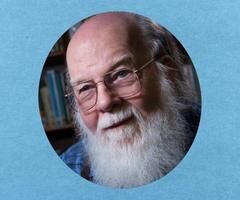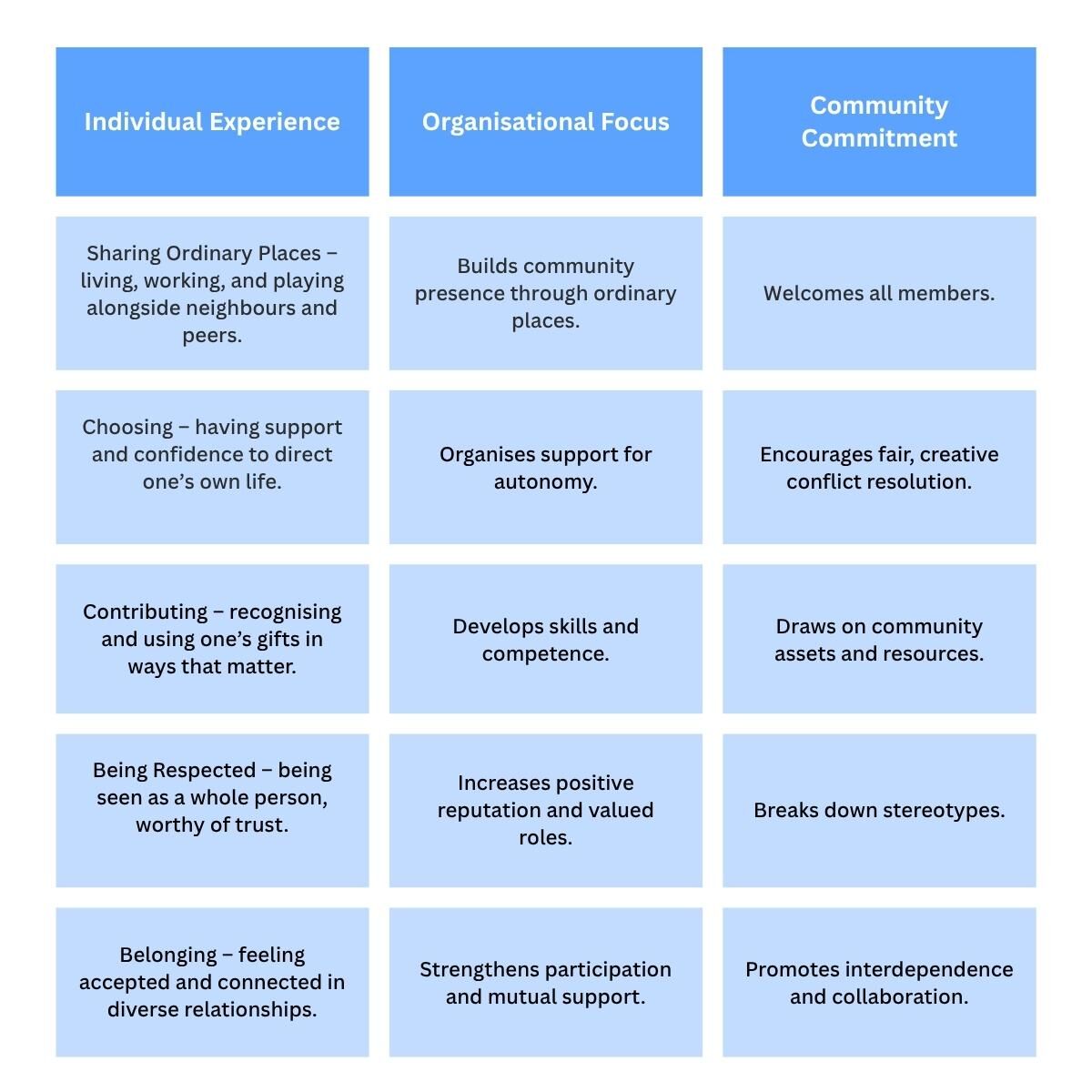Nan Carle reminds us how John O'Brien helped us escape institutional thinking and imagine a world of inclusion.

In 2025 we lost John O'Brien. Those who knew John knew him as wonderful friend and source of love and wisdom. Others will have been influenced by John, perhaps without even knowing. because John played a critical role in developing many of the most important innovations in policy and practice of our time.
For Citizen Network he was the primary source of inspiration for everything we have done over the past 16 years. John was also our first Fellow and he continued to support our work until the very end of his life.
To honour him and his contribution to creating a world where everyone matters we are publishing a series of articles that reveal different dimensions of his work.
Author: Dr. Nan Carle Beauregard
This article has been written with a deep appreciation for John’s lifelong work to build inclusive communities and to keep alive the quest that moves us toward justice and belonging. I hope that it reflects not only his lasting influence but also the continuing relevance of his ideas today.
It was September 1977 when, as a graduate student, I stepped off the Boat Train at Waterloo Station. London shimmered with energy — the bold lights at the Hayward Gallery changing with the wind and the Queen’s new Jubilee Tube Line still fresh and clean. Yet cracks of discontent were equally visible: power cuts, labour strikes, and, in the background, the moral shock of hospital inquiries revealing the inhumanity of long-stay institutions.
Across Britain, journalists like The Guardian’s Ann Shearer were exposing the hidden lives of people with disabilities. Public outrage grew, and so did a vision — that everyone, regardless of disability, was entitled to an ordinary life. The policies of deinstitutionalisation were beginning to take shape.
In the United States, Dr Wolf Wolfensberger was among the earliest and most forceful voices to challenge how we thought about people with disabilities. Were they “patients,” “eternal children,” “burdens,” or “menaces”? He argued instead for their humanity — for normalisation — and for the moral duty to build services that supported valued lives in our communities.
His PASS and PASSING evaluation tools gave us a language to examine how services either dignified or diminished people’s lives. Concepts like Model Coherency, Age-Appropriate Routines and Rhythms, and Social Role Valorisation moved conversations from pity to justice, from management to meaning. They invited us “to look deeply at what is working — and what is not.”
Wolfensberger provided the analytic foundation; John O’Brien offered the human path forward.
While Wolfensberger gave us a way to measure quality, John gave us a way to imagine possibility. Introduced to the UK through David Towell and Alan Tyne in the early 1980s, John’s first engagements were the intensive five-day PASS workshops where participants learned to observe, evaluate, and reflect. His genius was to turn analysis into inspiration — to ask not only what wasn’t working, but what could be different. “What are we working for — not just against?”
Over time, more than 3,000 people across Britain took part in these workshops. For over two decades, John travelled to the UK twice a year, creating a rhythm of reflection and renewal. His visits became catalysts for inclusion grounded in love, respect, and shared citizenship.
John was an attentive listener and a gifted storyteller. He believed deeply in person-centred ways of working — with people, not for them. Though part of Wolfensberger’s circle of reformers, John took the ideas further: from structural critique to human imagination.
“People are not problems to be solved, but mysteries to inspire wonder.”
He believed everyone can learn and grow, and that it is our collective task — as families, professionals, and neighbours — to create the conditions for that growth. His enduring contribution was to re-frame our focus: from deficiencies to strengths, from services to people, from isolation to community.
The Five Accomplishments and Valued Experiences:

Graphic Illustration of The Five Accomplishments and Valued Experiences
These ideas are simple yet radical. They build autonomy, competence, and interdependence — the building blocks of citizenship — and call communities to make room for everyone.
John’s influence spread through human development, person-centred planning, and countless community initiatives. His gentle insistence that inclusion is not a strategy but a commitment — a way of being in the world — transformed practice everywhere it touched.
He taught that planning begins with listening: discovering what gives a person’s life meaning and mobilising allies to help achieve it. Inclusion, for John, was an act of justice that transforms everyone involved.
His work reached far beyond disability services — to educators, health professionals, and community organisers — anyone who shared his conviction that we are all strengthened when all are included.
We are once again living in uncertain times — an era of economic strain and polarisation that tempts us to retreat into efficiency over empathy. The risk of returning to large-group models of care is real.
John O’Brien’s work stands as both a warning and a guide. It reminds us that values matter most when they are under pressure. His message is urgent: our task is not only to support people with disabilities but to build communities where everyone’s gifts are visible and needed.
His life’s work calls us to resist dehumanising systems and to keep faith in the possibilities of inclusion. It invites us — again — to imagine and to act.
John’s spirit continues to travel with us, through every story told, every person-centred plan written, every community meeting that begins with hope. His voice still asks the essential question: Are we creating the conditions for people to live good lives, together?
You can also read more about John O'Brien and his work here.
The publisher is Citizen Network. Seeing Beyond the Institution © Nan Carle 2025.
Deinstitutionalisation, disability, Inclusion, intellectual disabilities, Need for Roots, social justice, Europe, Global, USA, Article
USA
Advocate of Living Life as a Member of Communities and Neighbourhoods - wherever that might be.